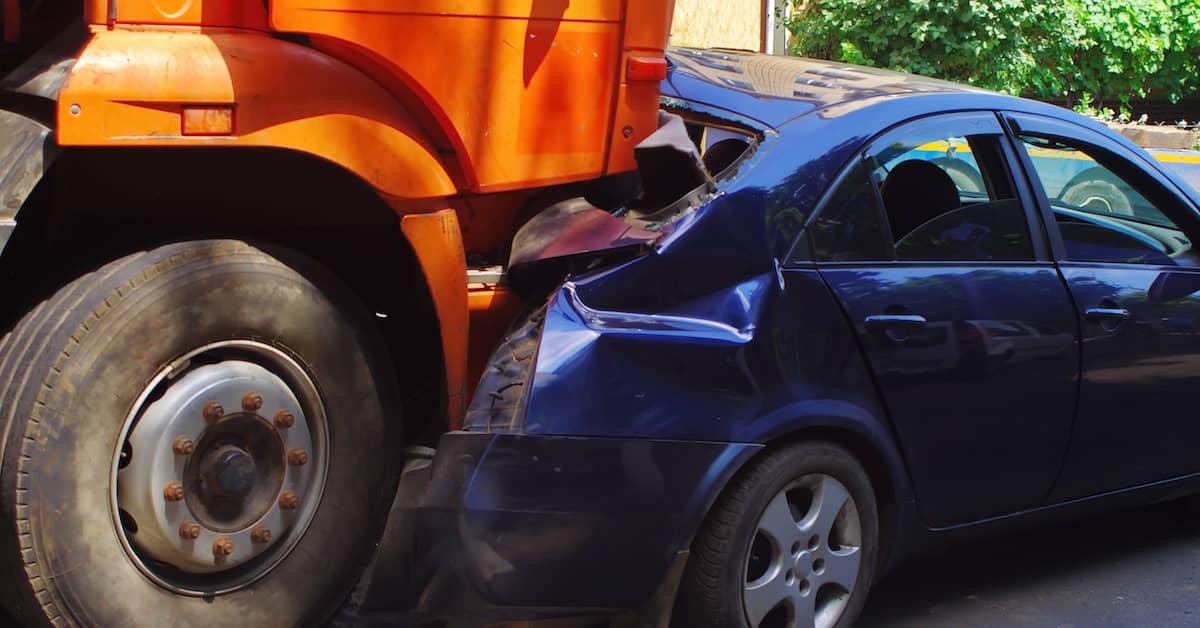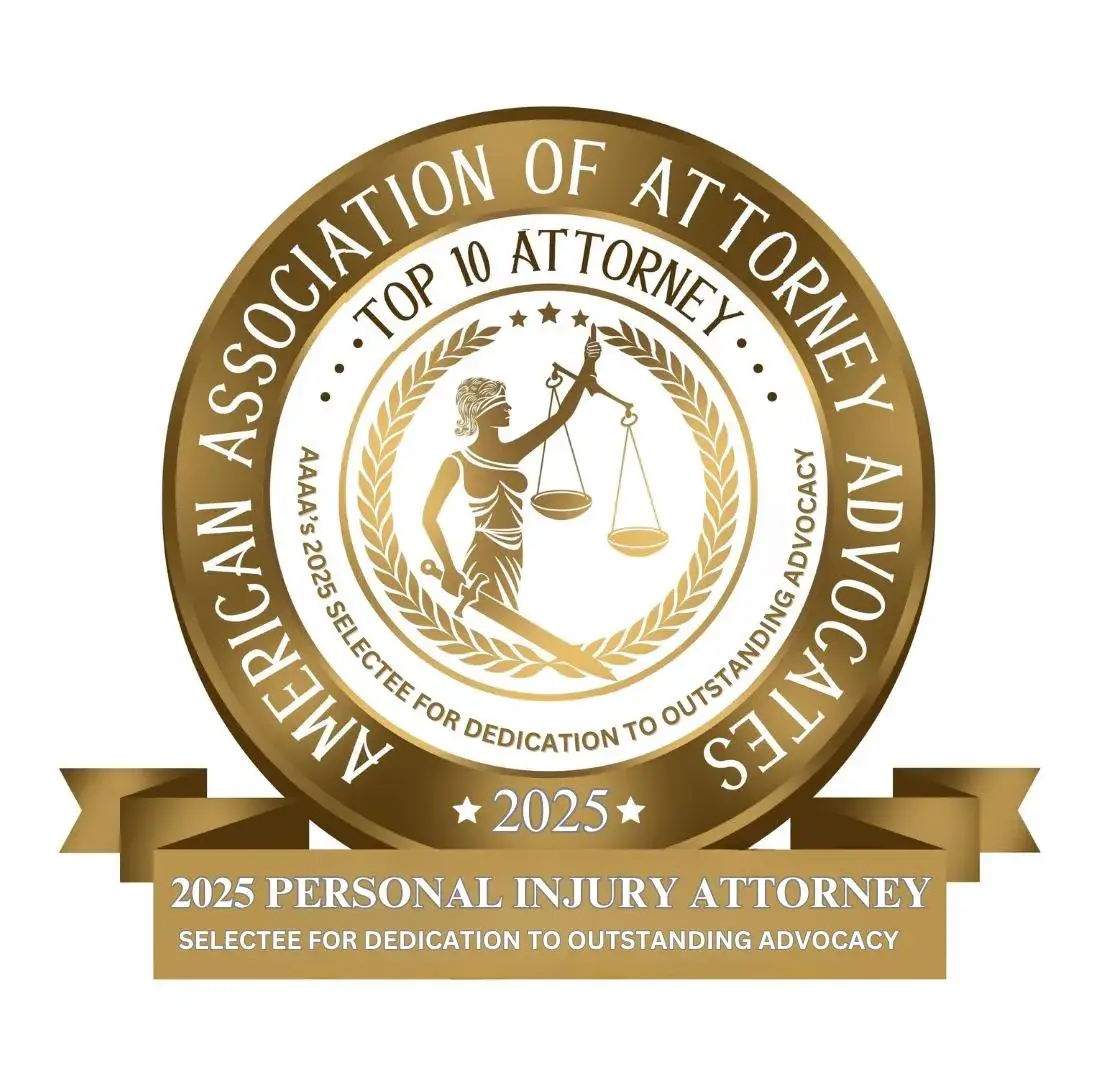
Who’s Liable If You Trip & Fall in a Parking Lot in New Jersey?
A fall in a parking lot can happen in seconds, but the consequences—from serious physical injuries to overwhelming medical bills and lost wages—can last for months or years. These incidents are frequently caused by preventable hazards such as potholes, uncleared ice and snow, broken pavement, or inadequate lighting. For anyone injured under these circumstances in New Jersey, the most pressing question becomes a legal one: Who is responsible for the conditions that led to the fall, and who can be held liable for the damages?
The answer lies in a well-established area of law known as premises liability. This legal principle outlines the specific duties that property owners and operators owe to visitors to keep them safe from harm.
The Fundamental Rule: A Property Owner’s Duty of Care

In New Jersey, the law recognizes a simple but powerful concept: property owners and operators have a legal responsibility, known as a “duty of care,” to keep their premises in a reasonably safe condition for people who are legally on their property.
What does “reasonably safe” mean? It doesn’t mean a property has to be a padded room, completely free of any possible hazard. That would be impossible. Instead, it means the owner or manager must act as a reasonably prudent person would under similar circumstances. This involves regularly inspecting the property for potential dangers, repairing known hazards in a timely manner, and warning visitors of dangers that cannot be immediately fixed.
Think of it this way: a shop owner in Edgewater who sees a large puddle of oil in a parking spot has a duty to clean it up or, at the very least, put up cones and a warning sign until it can be properly addressed. Ignoring it and hoping no one slips would be a failure—or a “breach”—of that duty.
Were You an Invitee? Your Legal Status Matters
New Jersey law categorizes visitors to a property, and this status affects the specific level of care the owner owes you. For someone in a commercial parking lot, the most important category is that of an “invitee.”
An invitee is someone who is on the property for the commercial benefit of the owner. This includes customers, clients, and even potential customers. If you were at a grocery store in Lodi, a doctor’s office in Englewood, a restaurant on Main Street in Fort Lee, or a mall in Hackensack, you would be considered an invitee.
Property owners owe the highest duty of care to invitees. This duty includes:
- Making reasonable inspections to discover any unsafe conditions on the property.
- Warning invitees of any latent or concealed dangers that the owner knows about or should have known about through reasonable inspection.
- Repairing dangerous conditions to make the property safe for visitors.
This is the key to most parking lot fall cases. It’s not just about what the owner knew, but also about what they should have known if they were being responsible.
Common Hazards: The Causes of Parking Lot Falls
Parking lots are not as simple as they appear. They are complex environments exposed to weather, heavy traffic, and constant use. The potential for dangerous conditions is everywhere. Some of the most common causes of trip and fall accidents we see include:
- Potholes and Cracked Pavement: The freeze-thaw cycles of a New Jersey winter can wreak havoc on asphalt, creating deep potholes and treacherous cracks that are easy to miss, especially at night.
- Poor Lighting: A parking lot that is dimly lit or has burned-out bulbs creates a serious hazard. It can conceal otherwise obvious dangers like potholes, curbs, or debris.
- Broken or Uneven Surfaces: This can include broken concrete wheel stops, heaving sections of sidewalk, or uneven transitions between asphalt and concrete walkways.
- Ice and Snow: Property owners have a responsibility to take reasonable steps to clear snow and treat ice after a storm. A fall on an untreated patch of “black ice” near a storefront in Teaneck or a snowy, unplowed corner of a lot in South Hackensack can lead to devastating injuries.
- Debris and Spills: Loose gravel, garbage, discarded items, or fluid leaks from vehicles can create unexpected slipping or tripping hazards.
- Faded or Unclear Markings: Worn-out paint on crosswalks, walkways, or curbs can make it difficult for pedestrians to navigate the lot safely.
- Poor Drainage: Improperly designed lots can lead to large, deep puddles that conceal underlying hazards like potholes. In cold weather, these puddles can freeze into dangerous sheets of ice.
Any of these conditions can be the basis for a premises liability claim if the property owner knew or should have known about them and failed to act.
Proving Your Case: The Four Elements of Negligence
Feeling that the property owner was careless is one thing; proving it legally is another. To successfully hold a property owner liable for your injuries, you generally need to establish four key elements:
- A Duty of Care Existed: As discussed, if you were a customer or client (an invitee), the owner owed you the highest duty of care to maintain a safe environment.
- The Duty Was Breached: The owner or operator failed in their duty. They didn’t fix the pothole, they didn’t salt the ice, they didn’t replace the burned-out lightbulb. A crucial part of this is proving “notice.”
- Actual Notice: This means the owner was explicitly aware of the danger. For example, if another customer had already complained to the manager about the icy patch you fell on.
- Constructive Notice: This is more common. It means the condition existed for such a long period of time that the owner should have discovered it through reasonable diligence and inspection. A large, deep pothole filled with weeds didn’t form overnight; a responsible owner should have found and fixed it.
- Causation: The owner’s failure (the breach of duty) must be the direct cause of your fall and your resulting injuries. The link must be clear: you tripped because of the broken curb, and the fall caused your broken wrist.
- Damages: You must have suffered actual harm. This isn’t just about the injury itself, but the full impact it has had on your life. Damages can include medical expenses (past and future), lost wages from being unable to work, pain and suffering, and the loss of enjoyment of your daily life.
What a Settlement or Verdict Can Cover
When you are dealing with the pain of an injury, the stress of medical appointments, and the disruption to your daily life, it can be difficult to even think about the financial aspect of your situation. But the reality is that a serious fall carries a heavy financial burden. The legal system recognizes this, and the goal of a personal injury claim is to secure compensation—known legally as “damages,” to help make you whole again.
While no amount of money can erase the pain or turn back the clock, a fair settlement or verdict is designed to provide you with the financial stability you need to heal and move forward. It provides a crucial sense of justice by holding the negligent party accountable for the full impact their carelessness has had on your life.
In a New Jersey premises liability case, the damages you can seek may include:

- All Medical Expenses
- Future Medical Care
- Lost Wages or Income
- Loss of Future Earning Capacity
- Other Out-of-Pocket Costs
- Pain and Suffering
- Loss of Enjoyment of Life
- Emotional Distress
Every person’s experience is unique, and the value of a case depends entirely on the specific facts and the full extent of your losses. By carefully documenting both the economic and non-economic impacts of your fall, you can present a complete picture of what has been taken from you and seek the justice you deserve.
“But What if I Was Partially at Fault?” Understanding Comparative Negligence in a Slip and Fall Accident
This is a question that weighs heavily on the minds of many fall victims. “Maybe I should have been looking down.” “I was on my phone for a second.” “Perhaps I wasn’t wearing the right shoes.” It’s human nature to second-guess ourselves, and insurance companies for the property owner will certainly try to shift the blame to you.
New Jersey uses a legal rule called “modified comparative negligence” to handle these situations. It works like this:
- A court or jury will determine the total amount of your damages.
- They will then assign a percentage of fault to each party involved, including you.
- As long as your percentage of fault is 50% or less, you can still recover compensation. However, your total award will be reduced by your percentage of fault.
- If you are found to be 51% or more at fault, you are barred from recovering any compensation at all.
For example, if you are found to be 20% at fault for not paying close enough attention, your award would be reduced by 20%. If you were found 60% at fault, you would receive nothing.
This is why it is so critical not to accept blame or give a recorded statement to an insurance adjuster without first understanding your rights. Their job is to minimize their payout, and they will use anything you say to increase your percentage of fault.
Who Is the Responsible Party? It Can Be Complicated.
You fell in the parking lot of a large shopping plaza in Bergen County. Who do you file a claim against? The store you were about to enter? The owner of the entire plaza? The property management company? A separate snow removal contractor?
The answer can be complex and often requires a thorough investigation. Liable parties could include:
- The Property Owner: The individual or corporation that owns the land and buildings.
- A Tenant Business: The lease agreement may specify that the individual store is responsible for maintaining the area directly in front of its entrance.
- A Property Management Company: Owners often hire third-party companies to handle all day-to-day operations, including inspections and maintenance.
- A Maintenance or Snow Removal Contractor: A landscaping company hired to fix pavement or a snow removal company hired to plow and salt could be held liable if their negligence caused the dangerous condition.
Identifying the correct responsible parties is a critical early step. It often involves examining lease agreements, maintenance contracts, and other business records that are not publicly available.
Our Slip and Fall Accident Lawyers Are Here for You
Recovering from a serious fall is more than just a physical process. It’s an emotional and financial ordeal that can disrupt every aspect of your life. The weight of medical bills, the stress of lost income, and the frustration of not being able to do the things you once took for granted can be overwhelming. You may feel like the playing field is tilted against you, with large companies and their insurance carriers on one side and just you on the other.

At Maggiano, DiGirolamo & Lizzi, we believe in leveling that playing field. Our entire practice is built on a foundation of courage, a drive for justice, and a deep respect for the clients who inspire us.
With over 100 years of combined experience, our award-winning attorneys have taken on complex injury cases throughout New Jersey and New York, achieving multi-million-dollar results for our clients. We handle these cases on a contingency fee basis, which means you pay absolutely no attorney’s fees unless and until we win your case.
If you have been injured in a slip-and-fall accident in a parking lot, you don’t have to face this journey alone. Contact Maggiano, DiGirolamo, and Lizzi today at (201) 585-9111 or through our online form for a free, confidential, and compassionate consultation. Let us listen to your story and explain how we can help.



















